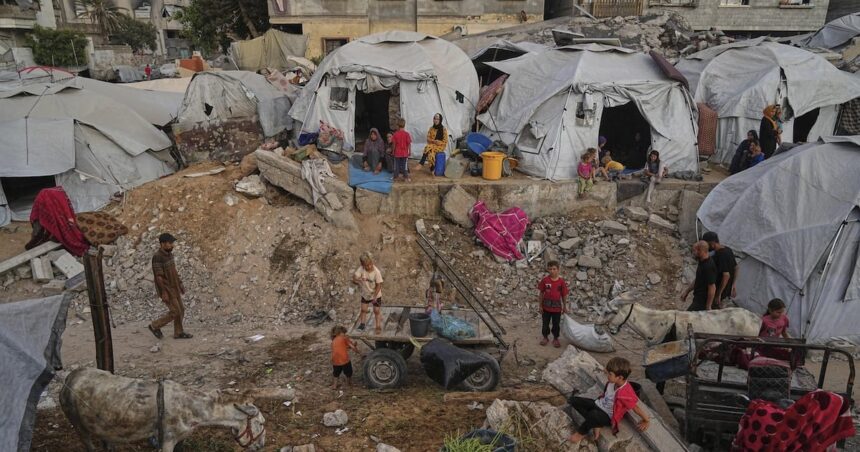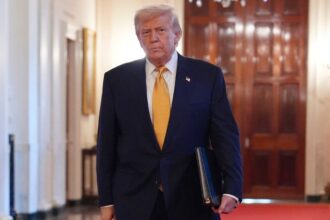The fragile threads of hope for Gaza emerged yesterday as former U.S. President Donald Trump made a startling announcement: Israel has reportedly agreed to terms for a 60-day ceasefire in the devastating conflict that has gripped the region since October 7th.
Speaking at a campaign event in Michigan, Trump revealed his direct involvement in the negotiations, claiming he had spoken with Israeli Prime Minister Benjamin Netanyahu about the proposed truce. “Israel has agreed to a deal for 60 days,” Trump told supporters, adding with characteristic confidence, “I think [Hamas] will make a deal.”
The announcement comes at a critical juncture in the nine-month war that has claimed over 39,000 Palestinian lives, according to Gaza health officials, and left much of the enclave in ruins. While CO24 World News has documented the growing humanitarian crisis, this potential breakthrough offers the first substantial pause in hostilities since the week-long November truce.
Netanyahu’s office has yet to confirm Trump’s claim publicly, and Hamas officials have remained cautiously noncommittal. Speaking on condition of anonymity, a senior Israeli official told CO24 that while discussions remain ongoing, several significant hurdles must be overcome before any formal agreement can be announced.
The proposed ceasefire framework reportedly includes provisions for the release of remaining Israeli hostages—approximately 120 are still believed held in Gaza—in exchange for Palestinian prisoners. Humanitarian aid would flow more freely into Gaza, where the United Nations has warned that famine conditions are imminent in northern regions.
“This agreement, if implemented, would represent the most significant diplomatic achievement since the conflict began,” said Dr. Eliana Katz, international relations expert at the University of Toronto. “However, the devil is always in the details, particularly regarding Hamas’s role in post-conflict Gaza governance.”
Trump’s involvement marks a notable shift in his approach to the conflict. While maintaining steadfast support for Israel’s security concerns, he has recently expressed growing discomfort with civilian casualties. “Too many people are being killed,” he acknowledged yesterday, though he stopped short of calling for a permanent end to hostilities.
The timing of Trump’s announcement has raised eyebrows among political analysts, coming as it does during a heated presidential campaign. Critics suggest the former president may be attempting to position himself as a peacemaker to counter Biden administration efforts, which have faced criticism for perceived ineffectiveness in the region.
Meanwhile, international pressure continues to mount on all parties. Canadian politicians across party lines have called for an immediate end to the violence, with Prime Minister Trudeau reiterating support for a two-state solution during recent parliamentary debates.
For Gaza’s civilians, caught in what UN Secretary-General António Guterres has called “a humanitarian catastrophe,” the potential ceasefire represents a desperately needed respite. After months of displacement, limited access to food, water, and medical care, even a temporary pause in fighting would allow critical supplies to reach those most vulnerable.
As diplomatic cables fly between capitals and negotiators work through the night, the question hanging over millions remains: Will this delicate opportunity for peace hold, or will it, like previous attempts, crumble under the weight of decades-old grievances and strategic calculations?






















